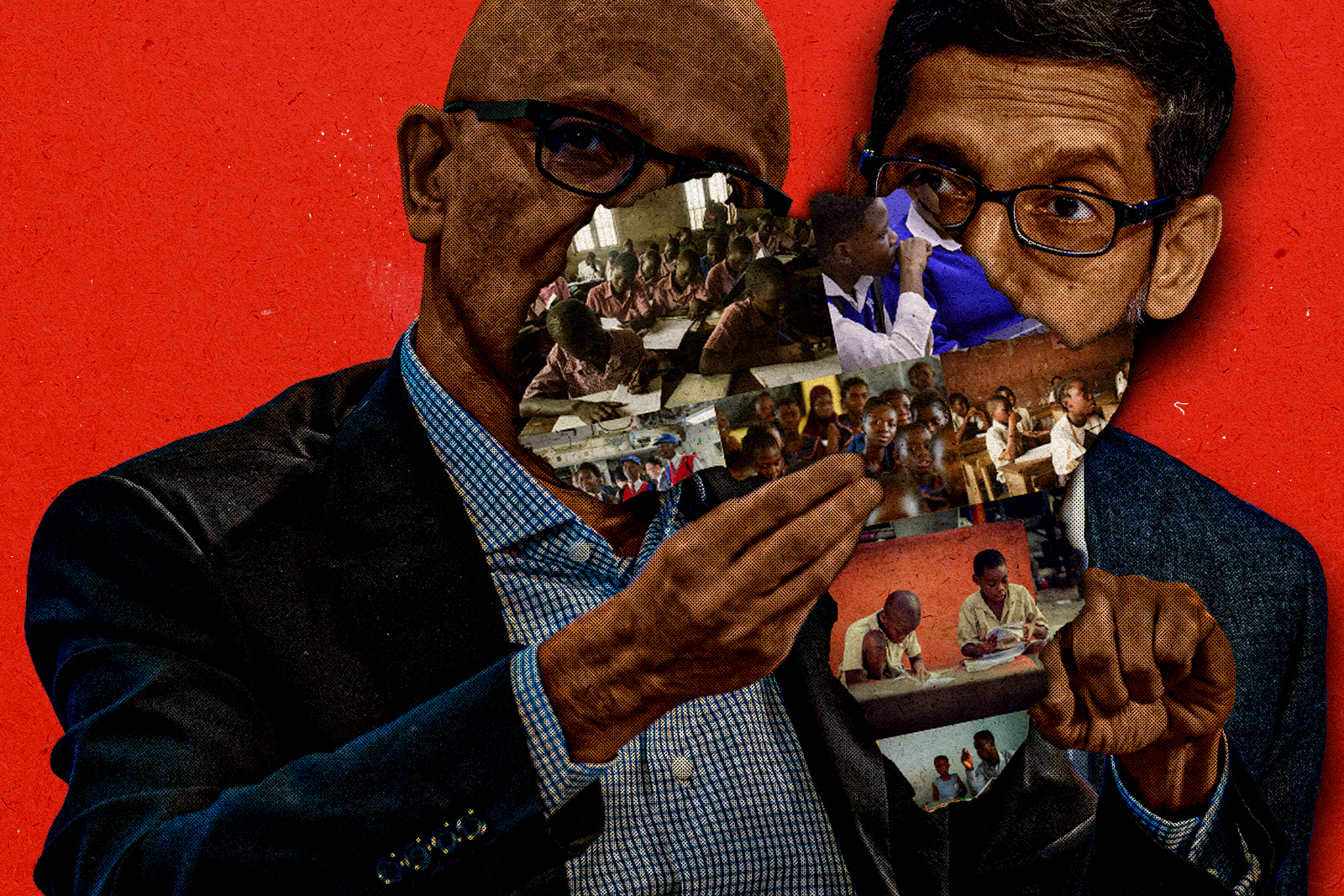
Is the U.S. Missing Out on Top Talent from Africa?
The United States has long reaped the benefits international students bring to the country. As we welcome students from around the world, we generate a direct financial impact on American universities and our economy at large. Indeed, international students not only bring a wealth of knowledge to U.S. campuses, but they also contribute $40 billion dollars annually to the national economy by paying tuition, renting apartments, or buying groceries. This activity sustains over 400,000 jobs.
After their studies, the value international students bring to the U.S. economy is perhaps even more significant: almost 80% of American unicorns (privately-held billion-dollar firms) have an immigrant founder or an immigrant in a key leadership role. Distinguished student immigrants like Google’s Sundar Pichai, Tesla’s Elon Musk, and Microsoft’s Satya Nadella are just a few examples of these trends at work.
Beyond Silicon Valley, there are 200,000 foreign medical graduates working as physicians in the United States. As recapped in a 2022 hearing by the House Judiciary Subcommittee on Immigration and Citizenship, immigrants comprise over half of all American physicians practicing geriatric medicine, about 40% of critical care and internal medicine doctors, and a quarter of those practicing general medicine. International students effectively sustain our healthcare system and aging population.
With all the benefits that student immigrants bring to the United States, it’s critical for our country to ensure no bright student is left behind. Recent research from MPOWER Financing, suggests that the United States has an opportunity to accelerate the benefits brought by international students by welcoming students coming from sub-Saharan Africa.
An analysis of students admitted to top universities last year highlights that graduate students from India, China, and Brazil, admitted to top U.S. universities have visa approval rates ranging from 70-90%. The admission rate is significantly lower for students from Africa. In fact, out of a sample of 3,000 students from sub-Saharan Africa admitted to top universities last year, only about 60% were granted a student visa to the United States – despite being admitted to a Master’s program and having secured the required funding.
The problem may be systemic. First-hand accounts from African students suggest that they face challenges securing visa interview slots. Some students we surveyed report having to jump through hoops just to secure a visa interview, often having to travel to other countries, at considerable expense, due to the lack of visa interview slots available at American consulates in Lagos, Accra, or Nairobi. Once these interview slots are secured, anecdotal evidence from the candidates suggests they may be held to a higher standard by U.S. immigration authorities than their peers from other emerging markets.
These immigration hurdles are baffling considering America’s dire need for skilled labor and the fact that when African students do succeed in coming to study in the U.S., the results are transformative for them, their communities, and the U.S. at large.
The U.S. currently has two job openings for every unemployed person, and this labor shortage is even more acute in engineering. Apple, Google, and other large tech firms routinely complain that immigration restrictions make it difficult to find employees. According to the Bureau of Labor Statistics, STEM jobs including chemical engineers, data scientists, and software developers are expected to be among the fastest-growing jobs over the next decade.
Consider semiconductors as an example: the CHIPS and Science Act has unleashed significant investment in semiconductor manufacturing, but one key resource is missing: talent. The United States is facing a critical shortage of skilled workers needed to build this nascent industry from the ground up. According to a recent study, the U.S. will need to add an additional 300,000 fabrication jobs to achieve self-sufficiency in chip manufacturing.
Meanwhile, according to research, African students overwhelmingly flock to engineering and other STEM fields. Over two-thirds of MPOWER’s students from Africa are pursuing a STEM education, which positions them perfectly to fill these vacant roles in the American labor force.
In addition to STEM fields, healthcare is also popular among African students, which can help the U.S. address the simultaneous challenges of gaps in healthcare access, nursing shortages, and the imbalances of an aging population. Three-quarters of rural counties have a shortage of physicians which could easily be filled by African graduates from American medical schools.
The United States has a golden opportunity to welcome the brightest minds from around the world who are already knocking on our doors. Africa, the youngest continent, and the home of an increasing well of global talent is central to this opportunity. Indeed, the future of America’s tech startups or our ability to fill critical healthcare roles may hinge on our ability to welcome African students to our shores and keep them here after they graduate.
Yet, time is running short. If the U.S. fails to optimize its immigration pathways for this talent soon, the country may lose out to other global talent hubs. Indeed, other advanced economies are making it a national priority to be the destination of choice for global talent. For instance, the United Kingdom has a visa program for international students that allows them to stay and work for up to three years after graduation.
Meanwhile, Australia has made significant efforts to attract and retain international talent – including African students – with special temporary visa programs, work visa programs, and funding opportunities designed for international students. Furthermore, Canada’s Express Entry program, the United Arab Emirates Golden Visa, Taiwan’s Gold Card, and Singapore’s newly launched Overseas Networks and Expertise pass are all examples of other advanced economies fighting hard to win the race for global talent.
To fully embrace the opportunity brought by international students knocking on our door, Congress could streamline the process of obtaining student visas and increase immigration pathways post-graduation, especially for international students in high-demand STEM and healthcare fields.
Tactically, the U.S. could increase staffing or streamline processes in overloaded consular offices, like those in sub-Saharan Africa, to eliminate months-long waiting times for visa appointments. The duration of OPT and CPT, programs that allow international students to temporarily work in the U.S. in their field of study, could be extended to maximize our country’s chances of retaining that talent and filling critical roles for those employers. Another initiative may be to exempt international students with in-demand STEM degrees from caps on green cards and H-1B visas.
Every international student, whether from Africa or elsewhere, deserves a fair shot at realizing their full educational and career potential. In doing so, these students will contribute directly to our economy and support our healthcare system. And who knows, some of them might even launch the next billion-dollar American tech firm or make a breakthrough in medical research.

